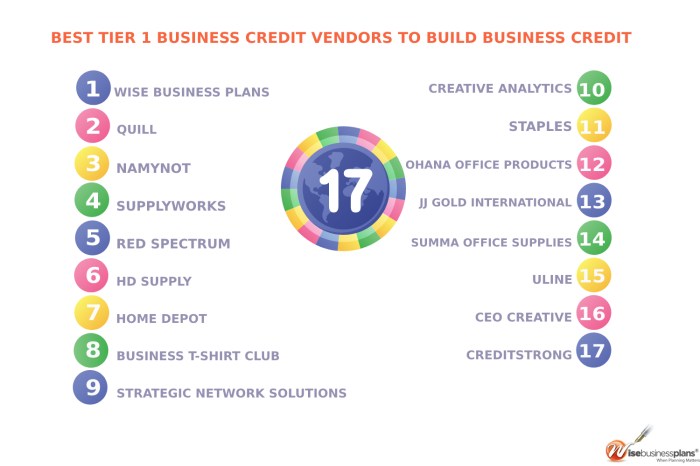Credit options for new businesses help pave the way to financial success. From traditional bank loans to alternative funding sources, understanding the various options is crucial for business growth and stability. Let’s dive into the world of credit and financing for new ventures.
Types of credit options
When it comes to financing a new business, there are several credit options available to entrepreneurs. These options can provide the necessary capital to start or grow a business. Let’s explore the different types of credit options and their features.
Traditional bank loans vs. lines of credit
Traditional bank loans and lines of credit are two common forms of financing for businesses. While both options involve borrowing money from a financial institution, there are key differences between them.
- Traditional bank loans: These are lump-sum loans that are typically used for specific purposes, such as buying equipment or expanding a business. The borrower receives the full amount upfront and repays it in fixed installments over a set period of time. Interest rates are usually fixed or variable.
- Lines of credit: A line of credit is a flexible form of financing that allows businesses to borrow funds as needed, up to a certain limit. It works like a credit card, where the borrower can access funds, repay them, and borrow again. Interest is only charged on the amount borrowed, not the entire credit limit.
Credit cards vs. business loans
Credit cards and business loans are also popular credit options for new businesses, each with its own set of benefits and drawbacks.
- Credit cards: Business credit cards offer convenience and flexibility for making purchases, managing expenses, and building credit. They often come with rewards programs and introductory 0% APR offers. However, high-interest rates and potential overspending can lead to debt accumulation.
- Business loans: Business loans provide a lump sum of capital that can be used for various business purposes, such as purchasing inventory, hiring employees, or expanding operations. They typically have fixed repayment terms and interest rates, making it easier to budget for repayments. However, the application process may be more rigorous, and approval can take longer compared to credit cards.
Eligibility criteria

To qualify for credit options as a new business, there are certain eligibility criteria that need to be met. These requirements are crucial for lenders to assess the risk associated with providing credit to a new venture.
Credit History, Revenue, and Business Plan, Credit options for new businesses
When applying for credit, lenders typically evaluate the credit history, revenue, and business plan of a new business to determine eligibility. A strong credit history demonstrates the ability to manage debt responsibly, while a stable revenue stream indicates the capacity to repay the borrowed funds. Additionally, a well-thought-out business plan Artikels the goals, strategies, and financial projections of the business, giving lenders insight into the viability of the venture.
- Credit History: Lenders look at the personal and business credit history of the owners to assess their creditworthiness. A good credit score and a history of timely payments increase the chances of approval.
- Revenue: The revenue generated by the business is a key factor in determining eligibility for credit. Lenders want to see a consistent income stream to ensure that the business can meet its financial obligations.
- Business Plan: A comprehensive business plan that Artikels the mission, target market, competition analysis, financial projections, and growth strategy is essential. Lenders use this information to evaluate the potential success of the business and its ability to repay the credit.
Moreover, lenders may require specific documents or information from new businesses applying for credit. These may include:
- Financial Statements: Income statements, balance sheets, and cash flow statements provide insight into the financial health of the business.
- Tax Returns: Personal and business tax returns help verify income and tax compliance.
- Business Licenses and Permits: Proof of necessary licenses and permits ensures the business is operating legally.
- Bank Statements: Bank statements show cash flow and financial stability.
- Collateral: Some lenders may require collateral to secure the credit, such as real estate or equipment.
Building credit as a new business
Establishing and building credit as a new business is crucial for future financial growth and opportunities. By following strategic steps and maintaining responsible credit practices, businesses can improve their creditworthiness and access better credit options.
If you or a loved one has been involved in a tragic motorcycle accident, don’t hesitate to consult with a fatal motorcycle accident lawyer who understands the complexities of such cases and can help you navigate the legal process with expertise and care.
Strategies to establish and build credit
- Open a business bank account: Separating personal and business finances helps track expenses and build a financial history.
- Apply for a business credit card: Using a business credit card for expenses and making timely payments can establish a positive credit history.
- Establish trade credit relationships: Working with suppliers who report payments to credit bureaus can help build credit.
Importance of making timely payments
Making timely payments is essential for improving creditworthiness as it demonstrates reliability and financial responsibility. Late payments can negatively impact credit scores and hinder future credit opportunities.
When you find yourself in need of a personal injury attorney for a car accident , it’s crucial to seek out experienced professionals who can provide you with the legal support and guidance you require during this challenging time.
Benefits of using credit responsibly
- Access to better credit options: Responsible credit usage can lead to higher credit limits, lower interest rates, and more favorable terms in the future.
- Building trust with lenders: Consistently managing credit obligations shows lenders that the business is reliable and capable of handling financial commitments.
- Improving credit scores: By using credit responsibly, businesses can boost their credit scores over time, opening doors to more opportunities for financing.
Alternative funding sources
Crowdfunding, venture capital, and angel investors are alternative funding sources that new businesses can explore to secure financial support outside of traditional credit options. These sources offer unique opportunities and challenges for entrepreneurs looking to fund their ventures.
Crowdfunding
Crowdfunding involves raising small amounts of money from a large number of individuals, typically through online platforms. This method allows businesses to access capital without giving up equity and can help validate the market demand for their products or services. However, it requires a strong marketing and networking strategy to attract potential backers.
Venture Capital
Venture capital firms invest in early-stage companies with high growth potential in exchange for equity. While this funding source can provide substantial capital and expertise, it often involves giving up a significant portion of ownership and control of the business. Startups seeking venture capital should be prepared for rigorous due diligence and high expectations for growth.
Angel Investors
Angel investors are individuals who provide capital to startups in exchange for equity ownership. These investors often bring industry expertise, mentorship, and networking opportunities in addition to funding. Working with angel investors can offer more flexibility than venture capital but may require a personal connection or pitch to secure funding.
Examples of successful businesses
– Oculus VR: Raised over $2.4 million through Kickstarter crowdfunding platform before being acquired by Facebook for $2 billion.
– Uber: Received early funding from angel investors like Chris Sacca and venture capital firms like Benchmark and Google Ventures before becoming a global ride-sharing giant.
– Airbnb: Attracted funding from angel investors and venture capital firms like Sequoia Capital and Andreessen Horowitz, propelling the company to become a leader in the sharing economy.
Closing Notes: Credit Options For New Businesses

Exploring credit options for new businesses is a journey filled with choices and opportunities. By making informed decisions and building a solid credit foundation, businesses can thrive and reach new heights of success.